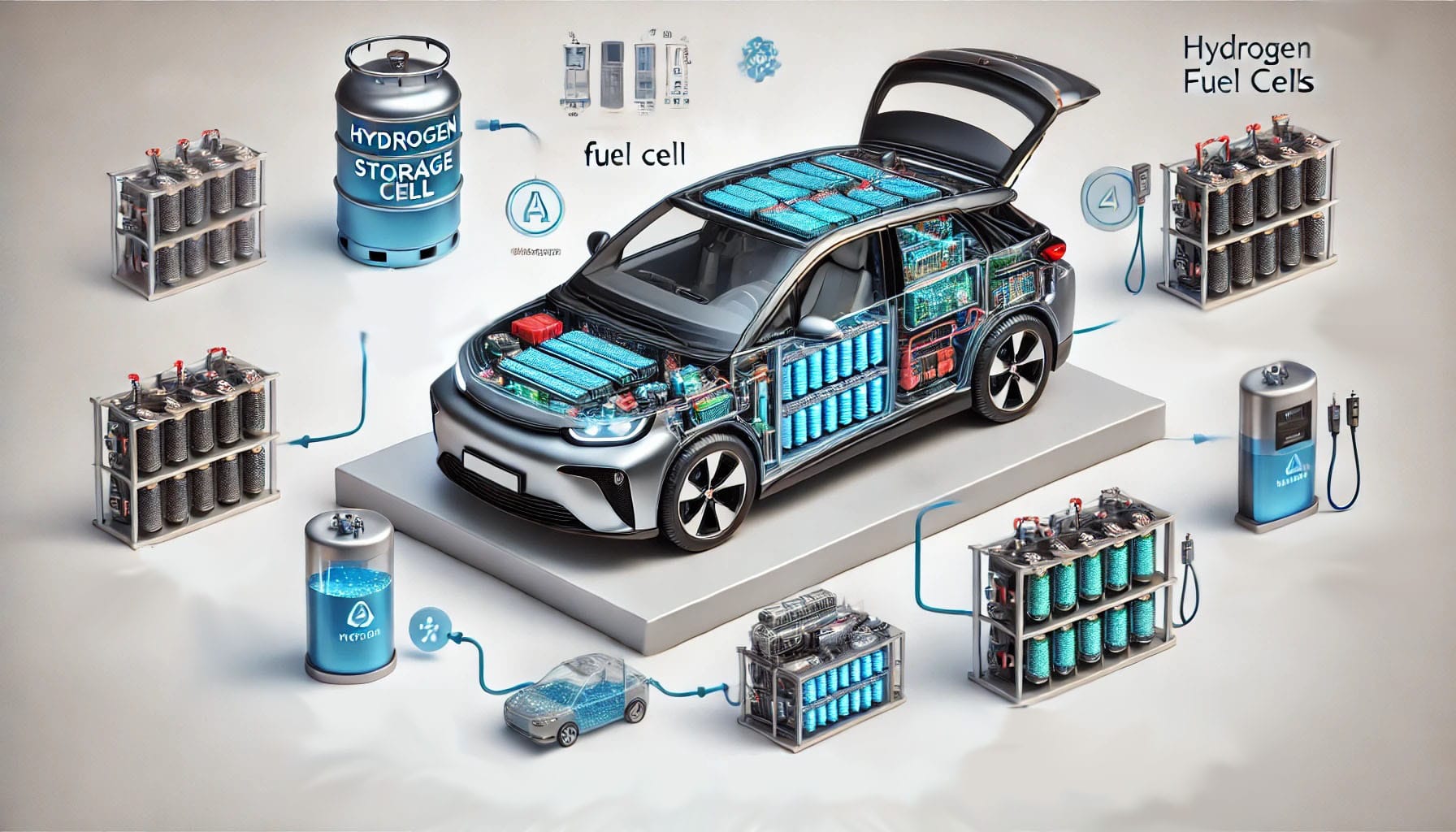What is the Future Trend of Hydrogen Fuel Cells?
Article Source
From the research paper "Future Vision of Hydrogen Fuel Cells: A Statistical Review" Read Full Article

Why You Should Care
Hydrogen fuel cells are a promising solution for creating clean, renewable energy. As we face climate change and the need for sustainable energy sources, hydrogen fuel cells offer a way to reduce carbon emissions and reliance on fossil fuels. Understanding their potential can help us support and push for advancements in this crucial technology.
Answering the Question: What is the Future Trend of Hydrogen Fuel Cells?
From a researcher's perspective, hydrogen fuel cells are set to play a significant role in the future of energy. The study highlights that by 2050, hydrogen could meet 24% of the world's energy needs, cutting CO2 emissions by 6 gigatons annually. The demand for hydrogen is expected to grow tenfold by 2050, driven by advancements in fuel cell technology and increasing investments in hydrogen infrastructure.
How Was the Study Done?
Researchers analyzed data from existing hydrogen fuel cell technologies, market trends, and future projections. They used computer models to simulate the adoption rates and impact of hydrogen fuel cells on various sectors like transportation, industry, and power generation. The study also reviewed numerous scientific publications and industry reports to gather comprehensive data.
What Was Discovered?
- Growing Demand: By 2050, the global demand for hydrogen could increase tenfold, reaching approximately 78 exajoules.
- Emission Reductions: Hydrogen could help reduce CO2 emissions by 6 gigatons annually by 2050, which is equivalent to the current emissions of the United States.
- Market Growth: The hydrogen economy could generate $2.5 trillion in revenue and create 30 million jobs worldwide.
- Technological Advancements: Improvements in fuel cell efficiency, such as reducing platinum content by 80%, are making hydrogen fuel cells more viable.
- Infrastructure Development: Significant investments are being made in hydrogen production and distribution infrastructure, with $70 billion pledged by governments and private companies.
- Cost Reduction: The cost of hydrogen production is projected to decrease by 50% over the next decade, making it more competitive with traditional energy sources. Currently, producing hydrogen costs about $6 per kilogram, but it could drop to $2-3 per kilogram by 2030.
- Efficiency Improvements: Hydrogen fuel cells can achieve an efficiency of 60-70% in converting chemical energy to electrical energy, compared to 25-30% for traditional internal combustion engines.
- Vehicle Range: Hydrogen fuel cell vehicles (FCVs) can achieve a range of over 300 miles per fill-up, similar to gasoline vehicles, and refueling takes just a few minutes.
- Energy Density: Hydrogen has an energy density of 120 megajoules per kilogram, which is nearly three times that of gasoline.
Why Does It Matter?
These discoveries underscore the potential of hydrogen fuel cells to revolutionize the energy landscape. By significantly reducing greenhouse gas emissions and providing a sustainable energy source, hydrogen fuel cells can help combat climate change and reduce our dependence on fossil fuels.
Moreover, the economic benefits, including job creation and new market opportunities, make investing in hydrogen fuel cells a smart choice for a sustainable future.
Hydrogen fuel cells are paving the way for a cleaner and more sustainable energy future. By understanding and supporting this technology, we can contribute to a healthier planet and a more resilient energy system.
Reference:
- Future Vision of Hydrogen Fuel Cells: A Statistical Review. Read Full Article
